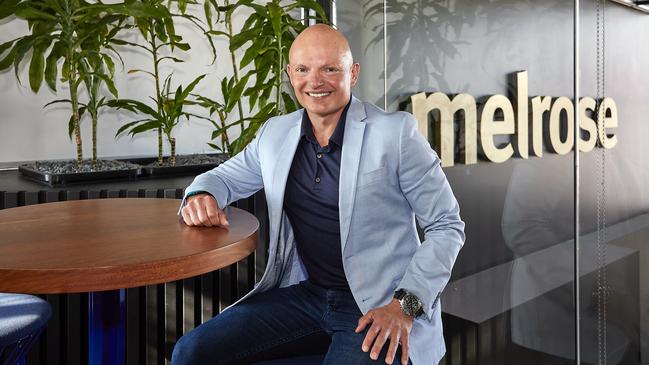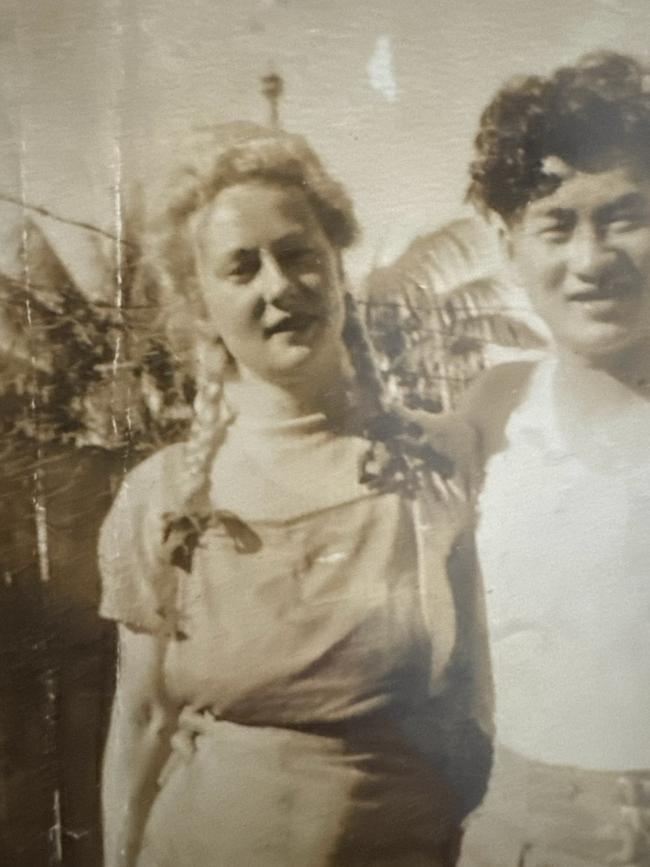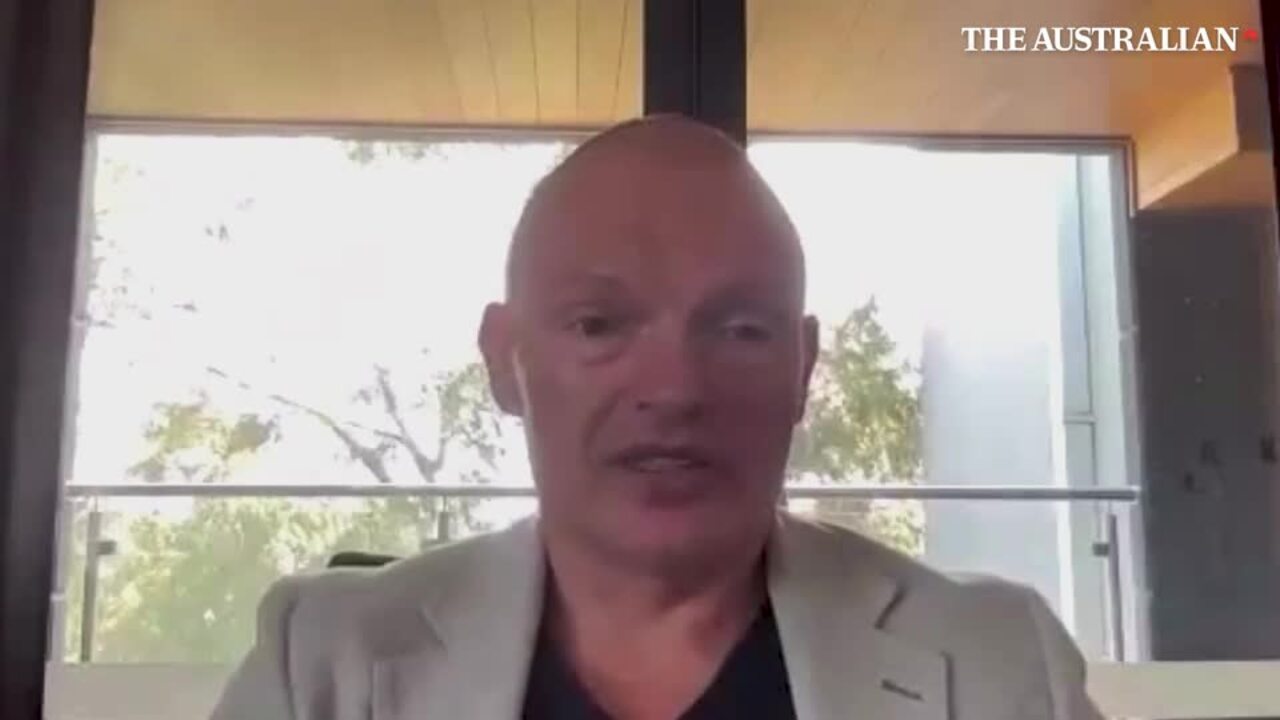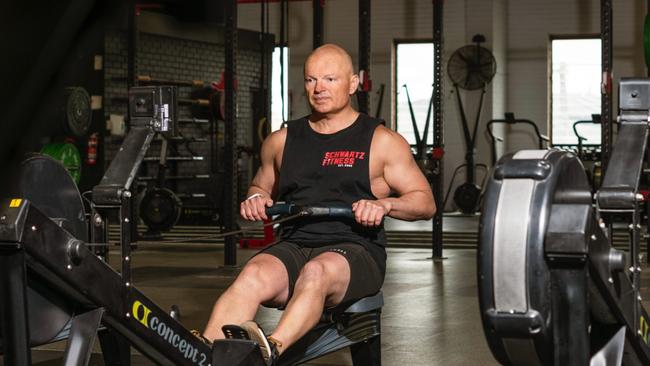‘Don’t buy rubbish’: Why this naturopath thinks veganism has gone too far
Nathan Cheong’s life changed forever when he lost his parents to AIDS and now this naturopath but avowed carnivore champions a range of vitamins to fight chronic disease.

The Day of the Dead, known in Spanish as El Dia de los Muertos, is a Mexican holiday celebrated every November when families welcome back the souls of their deceased relatives for a brief reunion.
Inside Nathan Cheong’s home in suburban Black Rock in bayside Melbourne, his 10-year-old daughter has set up her own play on the annual celebration derived from the rituals of the pre-Hispanic peoples of Mexico.
“She’s got an altar already set up for that. She’s got photos of my parents, (his biological mother) Glenda’s parents, even photos of our dog, who have all passed away,” Cheong reveals.
“They are all on the altar. She’s very into that whole celebration of the dead thing.”
Cheong, who has spent more than 20 years in leadership roles in the naturopathy and medical herbalism industries, has had his life heavily influenced by death.
He lost his father, Ken, to HIV/AIDS in 1988 after he received infected blood in surgery while undergoing heart bypass surgery.
His mother, Betty, passed away three years later from HIV/AIDS after contracting it from her husband. Cheong cared for her for the last year of her life.

He says his daughter’s unusual ritual highlights his family’s willingness to be open about the pain of losing loved ones.
“I think it has come out because my wife and I have talked openly to our kids about death and dying. I think it is something that we as a society, certainly in Western society, just don’t talk about at all,” he says.
“That’s not to say that you need to be preparing for death from day one, but death is just a natural part of life. That is my philosophy. I don’t necessarily think that I’m imparting this on my children, but it is something that we just don’t shy away from talking about. So for her, the altar is probably a way to just incorporate it into her daily life.”
In the wake of his personal tragedies, Cheong channelled his grief through resilience, throwing himself into sport and study. The former he describes as “my form of therapy”.
He achieved his second-degree black belt in taekwondo, ran ultra-marathons, rode 24-hour mountain bike races, climbed Mount Kilimanjaro, and more recently represented Victoria in the national masters Cross Fit and winter swimming events.
He also studied psychology and social work at Sydney University and worked in crisis counselling for seven years before securing a Bachelor of Health Science in Naturopathy from the University of New England.

Pivoting to natural healthcare transformed his career trajectory, as he took the helm of several natural healthcare brands as CEO.
After quickly developing a knack for formulating product, today his passion for science-led innovation sees him as CEO of Melrose Health, which for nearly 55 years has been a leading player in Australia’s $3.8bn natural healthcare market.
Started by entrepreneur Geoff Steinicke and his wife Judy in their Sydney garage in 1970, Melrose initially made shampoos, conditioners and body foams without damaging chemicals before pioneering sales of powdered 100 per cent vitamin C, green products high in chlorophyll and additive-free nut spreads.
Trademark oils
Melrose was the first in Australia to distribute flaxseed oil, which is rich in Omega-3 fatty acids, and the firm’s trademark fish and cod liver oils are still being produced today.
Now, as one of the nation’s leading nutrition experts with a deep interest in and understanding of regenerative and sustainable agriculture, Cheong says we need to understand the actual impact, versus the perceived impact, that humans and agriculture are having on the planet.
In this context, he passionately believes that a sustainable food system can exist with animals. Elements of veganism, he says, have simply gone too far.

“My view is I eat an animal-based diet versus a plant-based diet. I believe that animal protein is the most available and nutrient dense form of protein on the planet, and we’ve evolved to eat meat,” he declares.
“The reasons that people are going plant based are not based on credible evidence. It is more around virtue signalling and feeling you are doing something for your health, the environment and the planet. But when you unpack plant-based products, they don’t stand up to scrutiny. Most fall into the ultra processed food category. If you are going to be vegan, do it by consuming wholesome food. Don’t go to the supermarket and buy rubbish.”
Cheong’s interest in natural health was originally inspired by his mother, who took him to see naturopaths, Chinese herbalists and acupuncturists as a young child. One was Dorothy Hall, long known as the matriarch of Australian herbal medicine.
Cheong had been adopted by his mother and Chinese-born father when he was just four weeks old. Ken Cheong, a sheet metal worker who manufactured bespoke kitchens for Asian restaurants, had been rendered infertile after surviving a serious case of mumps when he was young.

Nathan’s biological mother, Glenda, was on a holiday in Sydney with her sister when she fell pregnant during a one-night stand. She was only 17, and handed her son over to the nuns at the Crown Street Women’s Hospital the moment he was born.
Cheong only discovered the truth about his heritage – his parents also adopted his brother and sister – when he was 18 years old, a week after his father died, over coffee with his mother at East Gardens Shopping Centre in Sydney’s southeast.
While it was a shock, he was more concerned about the impact on his mother of sharing her deepest secret with her son.
“I just wanted to let her know it was OK, even though they had kept it from me for 18 years. I knew then that she had HIV and I knew it would be a drawn-out period of illness for her. I knew I had to be supportive of her and (ensure) she didn’t feel any guilt,” he says.
‘Skin and bone’
Cheong eventually applied for his original birth certificate which carried the name of his biological mother, but did seek to contact her until many years later and only at the urging of one of his close female friends.
He was 35 years old when he finally met Glenda and discovered she was married to a man who, like his adopted father, could not have children. Glenda lives in the town of Kyabram in country Victoria. She and Cheong stay in touch.
While he says he was closer to his mother than father, largely because the former was always working, Ken Cheong’s death at the age of just 66 still had a profound impact on his adopted son.
Cheong senior tested positive for HIV 18 months after receiving affected blood in a transfusion given during heart surgery.
His condition worsened quickly because there was no real treatment for AIDS during the 1980s. He was transferred into a specially designated and confined AIDS ward in hospital.
“It was awful going to visit my dad there. Guys were walking around who had lost all of their muscle definition, they were just skin and bone. It was like being in a concentration camp. Dad eventually went into a coma and lasted a week before he passed away,” Cheong recalls solemnly.
His mother was also just 66 when she died three years later.
Cheong took a year off his university studies to care for her in the family home she had raised him in Sydney’s Sutherland Shire. The last three days of her life in September 2021 were spent at Prince Henry Hospital in Little Bay.
It was only a matter of months after Cheong had celebrated his 21st birthday.
“Losing your parents when you are young is the worst. I was lucky I had a support network around me. I just remember thinking, ‘I’ve just got to get through to Christmas and then I’m going to get back into uni again’. It was the classic avoidance technique, just keep yourself busy.” Cheong has since found happiness in his personal life, marrying a fellow naturopath named Rosemary. Today they homeschool their two daughters. Their youngest is six.
“Melbourne has a great homeschool network, particularly around our area. There’s a really good community. The girls catch up three or four times a week with their homeschool friends,” he says. “We jokingly call ourselves hippies, but we are not. We just have different opinions on schooling to the norm.”
It was Melbourne’s deeply private Douglass family that lured Cheong to Melrose Group in September 2021. For the previous year he had been running Melbourne-based probiotic manufacturer Life-Space Group, which in early 2018 was purchased by Chinese health supplements giant By-Health for almost $700m.
Melrose was bought by the Douglass family from Geoff Steinicke in 2010, and they continued his vision of providing high-quality, organic vitamin products to the world.
The family also owns Orchard Manufacturing, owner of the Nu-Lax laxative brands.
Today Cheong oversees the operations of Melrose Health along with what is now known as Orchard Wellbeing Foods.
“The Douglass family wanted me to be autonomous, which was great. That’s when I do my best work. But also they were extremely supportive of the direction that I wanted to take Melrose in. So I was coming in with a completely blank slate, effectively to rebuild the organisation after sales to China collapsed during Covid,” he says.
“So I had to change the strategy from being China-facing back to domestic-facing, ensuring that we actually regained relevance within the Australian vitamin and dietary supplement world.”
A story to tell
Earlier this year, in addition to its core oils range, Melrose launched a longevity vitamin category known as Melrose FutureLab, designed to address the endemic nature of chronic disease.
Eleven initial products have been released to address four major areas of chronic disease. Another 12 are on the drawing board. Two were released in October to address menopause.
In the future, products are planned addressing male hormone imbalance, sleeplessness, stress, inflammation, cardio health, and cognition products for memory.
“These are all areas that are super important to focus on as we age,” Cheong says.
“But we also need to address chronic disease with food, fitness and sleep – these are the base of the pyramid when it comes to looking after your longevity. Supplements are supplements, they should not be something you reach for if your diet and lifestyle are not dialled in. You can’t supplement your way out of trouble.”
Now, at the age of 54, Cheong’s life experiences have made him reflect on his own mortality.
He has a strong commitment to stay fit and healthy and has refused to let the tragedies of his past define him.
“I could have used them as an excuse in my life. But a lot of us go through difficult periods. I’ve been so lucky that I was adopted by this great family who gave me everything that I ever wanted. It is sad that I’ve lost them. But I’ve chosen to learn from what happened and use it to my advantage,” he says.
“If anything, it has given me not only resilience, but some perspective and context around just showing up and being mindful that everyone has a story to tell. Everyone’s story is super important to them.”



